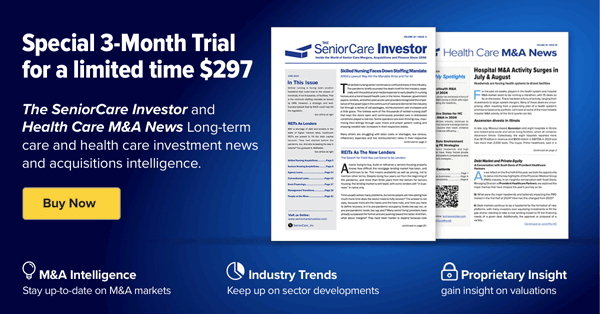Agenda Health, a healthcare-focused M&A advisory firm, recently played a key role in the acquisition of Angels Crossing Home Hospice, a Utah-based hospice provider, by Mission Health Services. This strategic acquisition allows Mission Health Services to enhance its hospice care offerings within Utah.
Angels Crossing Home Hospice, headquartered in Midvale, Utah, focuses on bringing meaning and fulfillment during the final stage of life, in addition to providing comfort and symptom management related to a patient’s illness.
Mission Health Services, also based in Utah and founded in 1990, is a non-profit organization offering skilled nursing, rehabilitation, assisted living, memory care and care for the intellectually disabled.
Agenda Health’s involvement began with establishing a connection with the owners of Angels Crossing Home Hospice nearly two years ago. Spencer Walters, Senior Director at Agenda Health, shared insights into the initiation and progression of the deal.
“Our firm connected with the owners of the Hospice about two years ago to explore interest in a transaction,” said Walters. “They weren’t interested at the time, but welcomed periodic follow-up as they were planning to exit the business in the following 1-2 years in order to focus on a new venture.”
This long-term relationship-building allowed Agenda Health to step in when the owners of Angels Crossing were ready to proceed with the sale.
According to Walters, this acquisition aligns well with broader trends in the hospice sector, particularly given current industry challenges.
“For agencies looking to expand their coverage by acquiring licenses or smaller hospices in place of a de novo strategy, this transaction demonstrated the growing value of a license outside of the new 36-month rule,” Walters noted.
The 36-month rule, introduced by the Centers for Medicare and Medicaid Services, restricts any change in majority ownership within the first 36 months after initial Medicare enrollment. This regulation mirrors similar rules for home health agencies and aims to prevent rapid turnover of provider numbers, ensuring stability in patient care. Acquiring existing licenses has become an attractive strategy for agencies looking to expand, as it allows for quicker market entry and operational readiness by bypassing the lengthy and complex process of obtaining new licenses and provider numbers.
According to Walters, measuring the success of an M&A transaction is multifaceted.
“A successful M&A transaction is characterized by the achievement of mutually beneficial outcomes that align with the strategic objectives of both parties involved,” said Walters. “For the seller, this entails realizing a competitive transaction value that meets or exceeds market expectations, coupled with a deal structure that facilitates a well-planned exit strategy. Conversely, for the buyer, success is often defined by the procurement of an asset that catalyzes future growth through market expansion, service diversification, and the creation of new revenue streams. Ultimately, a successful M&A transaction creates synergies that enhance the combined entity’s competitive position and long-term value proposition.”
Walters went on to say that for Agenda Health, a successful transaction is underpinned by a thorough yet efficient due diligence process, free from significant obstacles, instilling confidence in both parties and contributing to a smooth transition and post-closing integration.
Specific financial details of the deal remain undisclosed, as confidentiality agreements often prevent the release of such details.
The transaction not only adds value to Mission Health Services’ existing portfolio but also enhances its competitive position in the Utah hospice market, Walters said.
“This acquisition aligns perfectly with Mission Health Services’ strategic goals, providing them with additional licenses and enhancing their ability to deliver high-quality hospice care,” Walters stated.
Looking ahead, Walters remains optimistic about the future of the hospice sector.
“The demand for hospice care continues to grow, driven by an aging population and the increasing prevalence of chronic illnesses,” said Walters. “This sector will see continued interest from both buyers and sellers, regardless of economic conditions.”
According to data captured in the LevinPro HC database, there have been 79 Home Health & Hospice (HH&H) transactions announced through October 2024. Out of the total deals announced through October, 14 specifically focus on the home hospice and palliative care sector, indicating strong interest in this area. During Q3:24, there were 18 deals announced in the HH&H space, representing a 40% decrease from the 30 deals announced during the previous quarter, and a 25% decrease from Q3:23. Despite this slowdown, Walters’ insights show that strategic transactions will continue to be critical for adapting to market demands and navigating the complexities of the hospice care landscape.
As we look toward 2025, the HH&H sector is poised for a potential rebound in M&A activity. The ongoing need for high-quality care, coupled with the industry’s adaptability, suggests that the market will likely see increased investments and strategic acquisitions, positioning providers to meet future challenges and opportunities.
Check out our other interviews conducted with the Agenda Health team:


